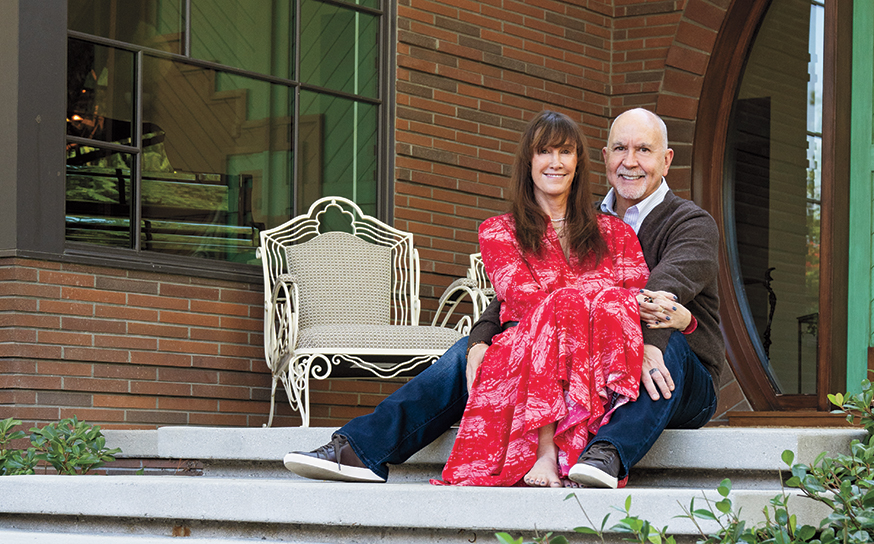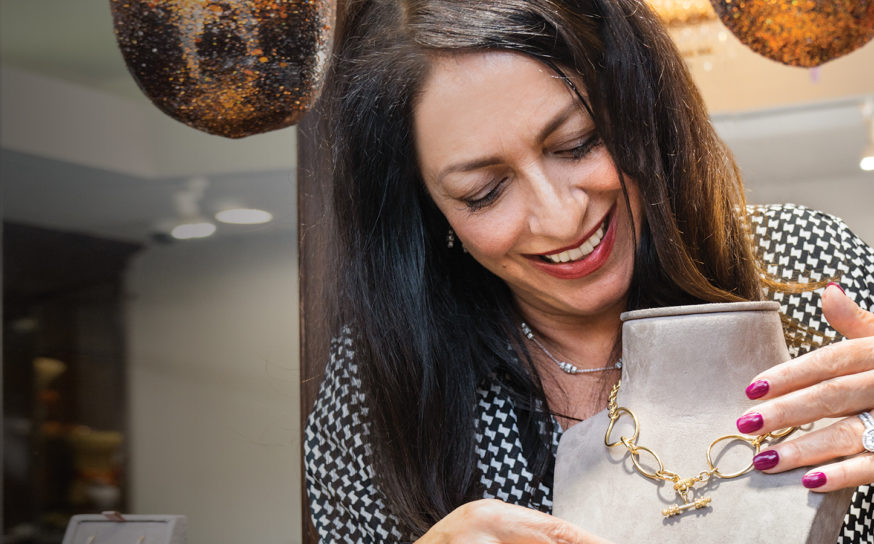
Encino Mom and Empty Nester Jane Ulman Offers Child-Rearing Tips for Millennials.
The parenting puzzle simplified.
-
CategoryPeople
-
Written byJane Ulman
-
Illustrated byChristine Georgiades
“I have one piece of parenting advice,” I tell my son Gabe and newly pregnant daughter-in-law.
“That’s not true,” my husband, Larry, interrupts.
“Well, maybe,” I concede. “But let’s start with one: Don’t tell anyone the name until the baby is born.”
“We know,” Gabe answers.
How does he know? How did Larry and I know to keep the names of our four sons secret? Something we read? Heard? Gleaned from a parenting class? Or is it a protective parenting instinct that wards off myriad conflicting opinions?
How do we know anything about what constitutes good parenting practices? Certainly we’ve made progress since Proverbs 29:15 advocated the authoritarian “rod and reproof” method almost three millennia ago.
“Do not try to be cool. You are not cool to your child. You are hideously embarrassing.”
More recently, in 1946, Dr. Benjamin Spock published The Common Sense Book of Baby and Child Care, assuring mothers, “You know more than you think you do.” Maybe. But not my mother. She didn’t know not to put the same bowl of increasingly crusted Gerber baby oatmeal on my high chair tray for every meal until finally, out of desperation, I deigned to eat it.
Spock opened the floodgates to a tsunami of books on childrearing—soon replaced by the loftier label “parenting”—penned by pediatricians, psychologists and other wanna-be bringing-up-baby gurus. They have brought us innumerable and conflicting parenting styles, which include among others: tiger, dolphin and jellyfish; authoritative; free range; uninvolved; helicopter; and new to me, lawnmower, which involves mowing down any obstacle your child might encounter. As a new parent, how do you decide?
During my first pregnancy, Larry and I voraciously read many of those manuals, attended classes which taught us the handy football hold—and mostly worried. We later became fans of sleep trainer Dr. Richard Ferber, responsible for raising our sanity levels in proportion to the number of hours one not-to-be-identified son slept.
Another favorite was author and columnist Dave Berry. “Do not try to be cool,” he advised. “You are not cool to your child. You are hideously embarrassing.” There’s a corollary, taught to me by our oldest son, Zack, at age 10, when I apologized for being a geek. “Mom,” he instructed. “If you are one, you don’t tell anyone.” Zack’s now the dad of two girls, age 3 and age 6 months. He has a few good years before becoming an embarrassment to them.
Basically Larry and I have only two time-tested, line-in-the-sand parenting tips. One, eating is allowed only in the kitchen (or TV room on those rare occasions like the Super Bowl). And two, children need to know the location of their shoes at all times. I vowed early on never to go on a shoe search, especially on those always chaotic school mornings.
Over many years we’ve learned there’s no right, one-size-fits-all guide to parenting. How babies enter the world is pretty much who they are. You can make them worse with neglectful or abusive parenting. And you can maybe improve them a bit with a few common sense guidelines. Children need a safe, stable and loving environment. They need roots and wings, an education and orthodontia. And they need parents who keep their names a secret, make them eat in the kitchen and never hunt for shoes.
Jane Ulman and her husband, Larry, live in Encino. They are the authoritative parents of an obstinate Akita and the permissive grandparents of, to date, two girls. They now allow their four adult sons (plus spouses and significant others) to eat in the living room.











